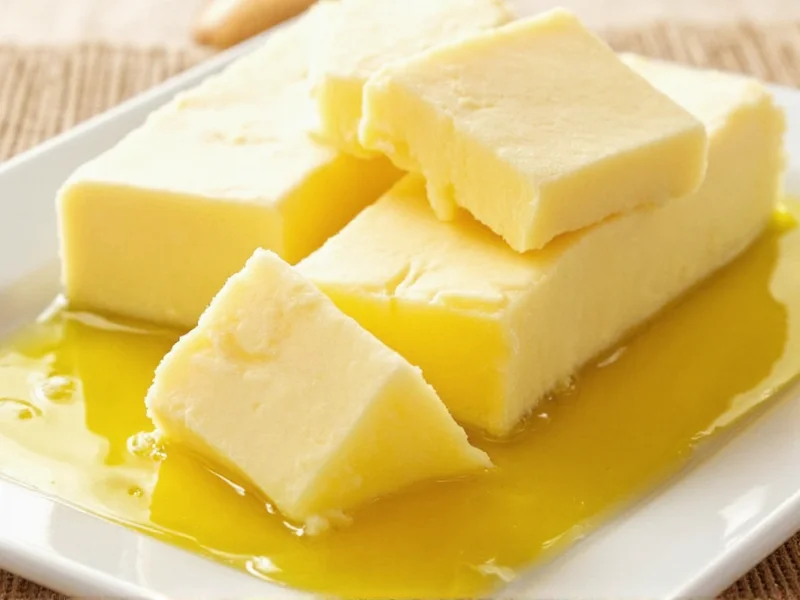The answer to whether vegetable oil is better than butter isn't absolute—it depends on your health goals and cooking needs. For heart health, most unhydrogenated vegetable oils (like olive, canola, and avocado oil) generally offer advantages over butter due to their higher unsaturated fat content and lower saturated fat levels. However, butter provides certain nutrients and performs better in specific culinary applications. The healthiest choice varies based on individual dietary requirements, cooking methods, and the specific type of vegetable oil considered.
When comparing vegetable oil versus butter, understanding their nutritional profiles is essential for making informed dietary choices. Both fats serve important culinary functions but differ significantly in their composition and health implications. This comprehensive comparison examines scientific evidence to help you determine which option aligns better with your specific health objectives and cooking requirements.
Nutritional Composition: Vegetable Oil vs Butter
At their core, both vegetable oils and butter are concentrated sources of dietary fat, but their fatty acid profiles differ substantially. Butter, a dairy product, contains approximately 80% fat with the remainder being water and milk solids. In contrast, most vegetable oils are 100% fat, extracted from plant sources through mechanical or chemical processes.
| Nutrient (per tablespoon) | Butter | Olive Oil | Canola Oil | Soybean Oil |
|---|---|---|---|---|
| Calories | 102 | 120 | 124 | 120 |
| Total Fat | 11.5g | 14g | 14g | 14g |
| Saturated Fat | 7.3g | 2g | 1.2g | 2.1g |
| Monounsaturated Fat | 3.1g | 10g | 9g | 3.3g |
| Polyunsaturated Fat | 0.4g | 1.5g | 3.8g | 8.6g |
| Cholesterol | 31mg | 0mg | 0mg | 0mg |
| Vitamin E | 0.1mg | 1.9mg | 2.4mg | 1.1mg |
| Vitamin K | 0.4mcg | 8.1mcg | 10mcg | 22mcg |
Heart Health Implications
When evaluating vegetable oil vs butter for heart health, research consistently shows that replacing saturated fats with unsaturated fats can improve cardiovascular outcomes. Butter contains approximately 50-60% saturated fat, while most vegetable oils contain significantly less—typically 10-20%. The American Heart Association recommends limiting saturated fat intake to 5-6% of total daily calories for those with heart disease concerns.
Multiple large-scale studies, including the landmark PREDIMED trial, have demonstrated that Mediterranean-style diets rich in olive oil reduce cardiovascular events by up to 30% compared to low-fat diets. Research published in Circulation indicates that replacing just 5% of daily calories from saturated fats with polyunsaturated fats can reduce heart disease risk by 25%.
However, not all vegetable oils offer equal benefits. Highly processed oils subjected to high-heat extraction methods may contain trans fats or oxidation products that could negate potential benefits. Cold-pressed, unrefined oils generally preserve more beneficial compounds.
Cooking Properties and Heat Stability
The question of which is better for baking butter or vegetable oil depends on the desired outcome. Butter provides superior flavor and texture in baked goods due to its water content and milk solids, which contribute to browning and flakiness. In contrast, vegetable oils create more moist, tender products but lack butter's distinctive flavor.
When considering cooking with butter vs vegetable oil at high temperatures, smoke point becomes critical. Butter has a relatively low smoke point (around 300°F/150°C), making it prone to burning during high-heat cooking. Most refined vegetable oils have higher smoke points:
- Avocado oil: 520°F (270°C)
- Safflower oil: 510°F (265°C)
- Canola oil: 400°F (205°C)
- Olive oil (refined): 465°F (240°C)
When heated beyond their smoke points, fats break down and form potentially harmful compounds. For high-heat cooking methods like frying, refined vegetable oils generally perform better than butter.
Nutrient Profile Comparison
Butter contains several nutrients absent in most refined vegetable oils, including:
- Vitamin A (as retinol)
- Small amounts of vitamin K2 (important for bone and cardiovascular health)
- Conjugated linoleic acid (CLA), which may have metabolic benefits
- Butyrate, a short-chain fatty acid with anti-inflammatory properties
On the other hand, vegetable oils typically provide higher levels of vitamin E (a potent antioxidant) and vitamin K1. Extra virgin olive oil contains polyphenols with demonstrated anti-inflammatory effects. The nutrient density varies significantly among different vegetable oils—extra virgin olive oil, for instance, contains numerous beneficial phytochemicals absent in highly refined oils.
Special Dietary Considerations
For individuals following specific dietary patterns, the choice between vegetable oil alternatives to butter becomes particularly relevant:
- Vegan diets: Require plant-based fats, making vegetable oils the only option
- Lactose intolerance: Butter contains minimal lactose, but clarified butter (ghee) may be better tolerated
- Keto diets: Both can fit within keto parameters, but butter provides additional nutrients
- Heart disease risk: Most healthcare providers recommend replacing butter with unsaturated vegetable oils
Those with specific health conditions should consult healthcare providers for personalized recommendations. For example, individuals with familial hypercholesterolemia may need to be particularly cautious with saturated fat intake.
Practical Recommendations
Based on current scientific understanding, here are evidence-based recommendations for choosing between vegetable oil and butter:
- For heart health: Prioritize unhydrogenated vegetable oils like olive, canola, or avocado oil over butter. The is canola oil healthier than butter question generally yields a positive answer for cardiovascular outcomes.
- For baking: Butter typically provides superior texture and flavor, though some recipes work well with oil substitutes.
- For high-heat cooking: Use refined vegetable oils with high smoke points rather than butter.
- For dressings and low-heat applications: Extra virgin olive oil offers maximum nutritional benefits.
- For overall dietary pattern: Focus on the bigger picture—replacing saturated fats with unsaturated fats is more impactful than obsessing over individual servings.
Remember that both fats are calorie-dense, so portion control remains important regardless of which you choose. The healthiest approach incorporates a variety of fats from whole food sources while minimizing highly processed options.











 浙公网安备
33010002000092号
浙公网安备
33010002000092号 浙B2-20120091-4
浙B2-20120091-4